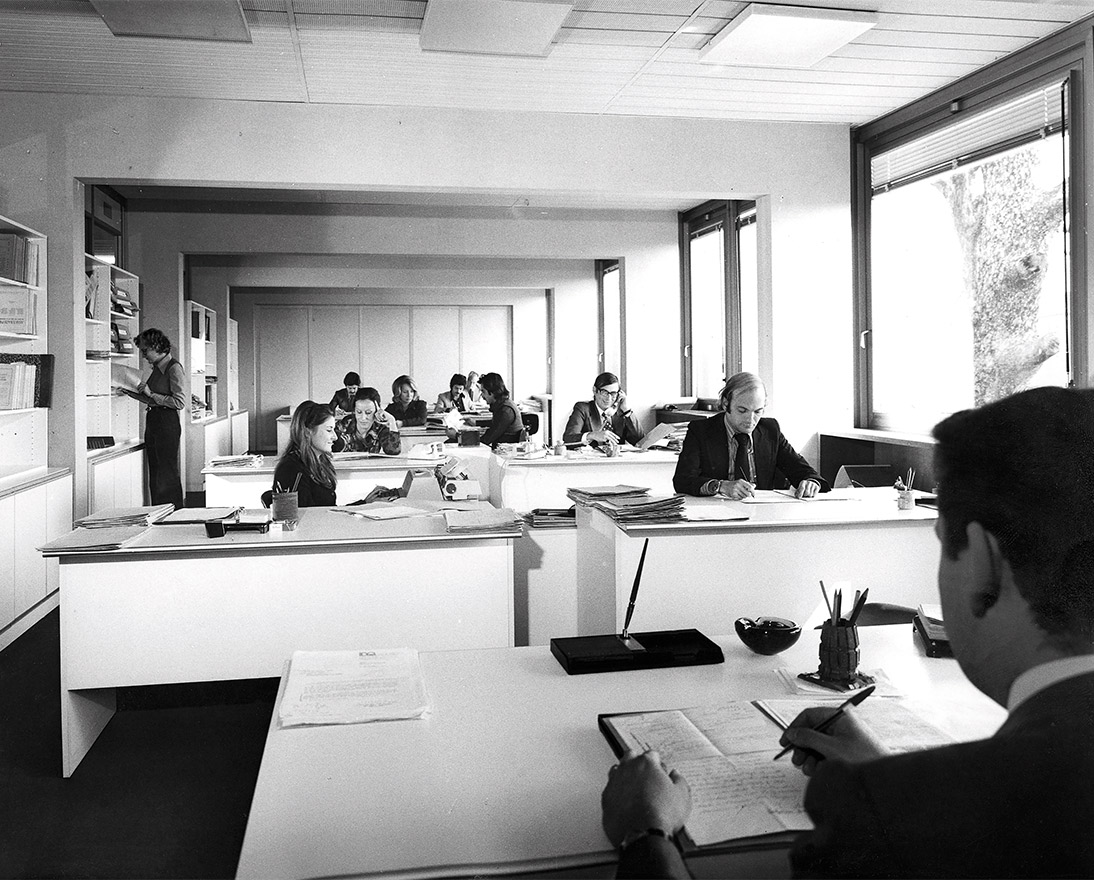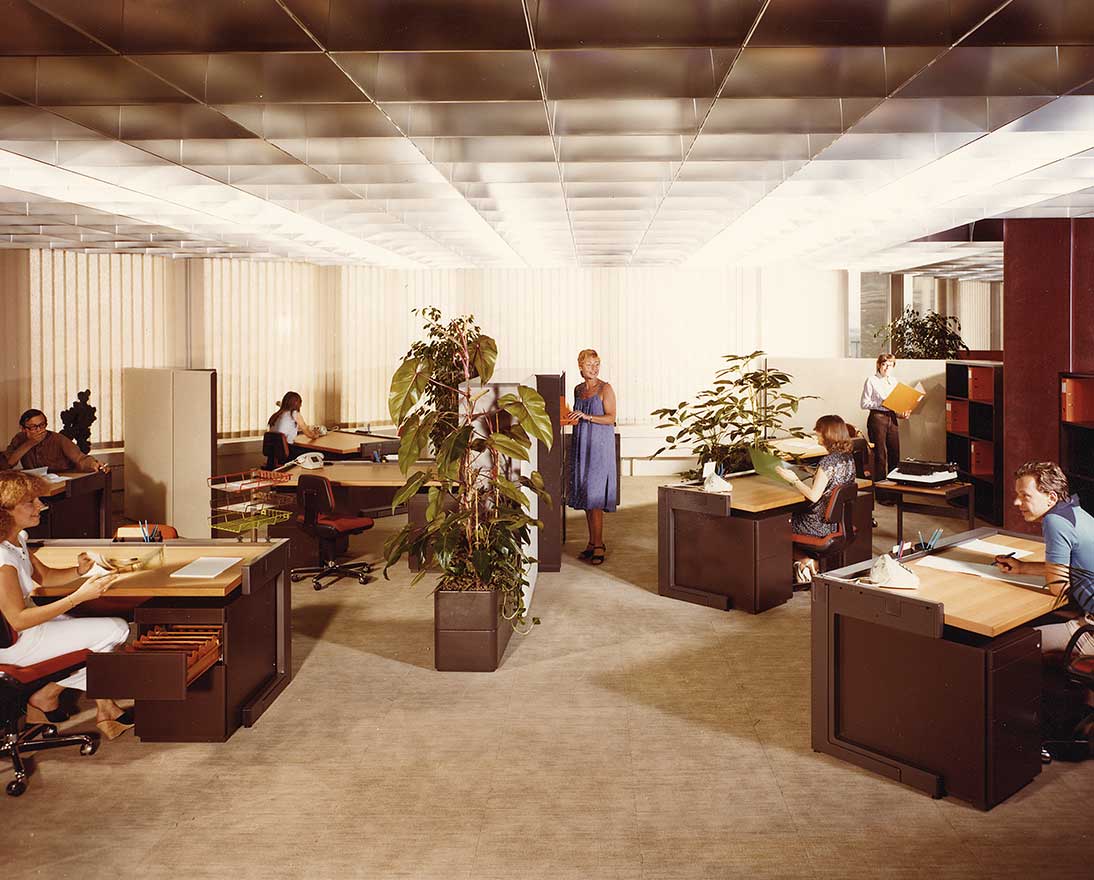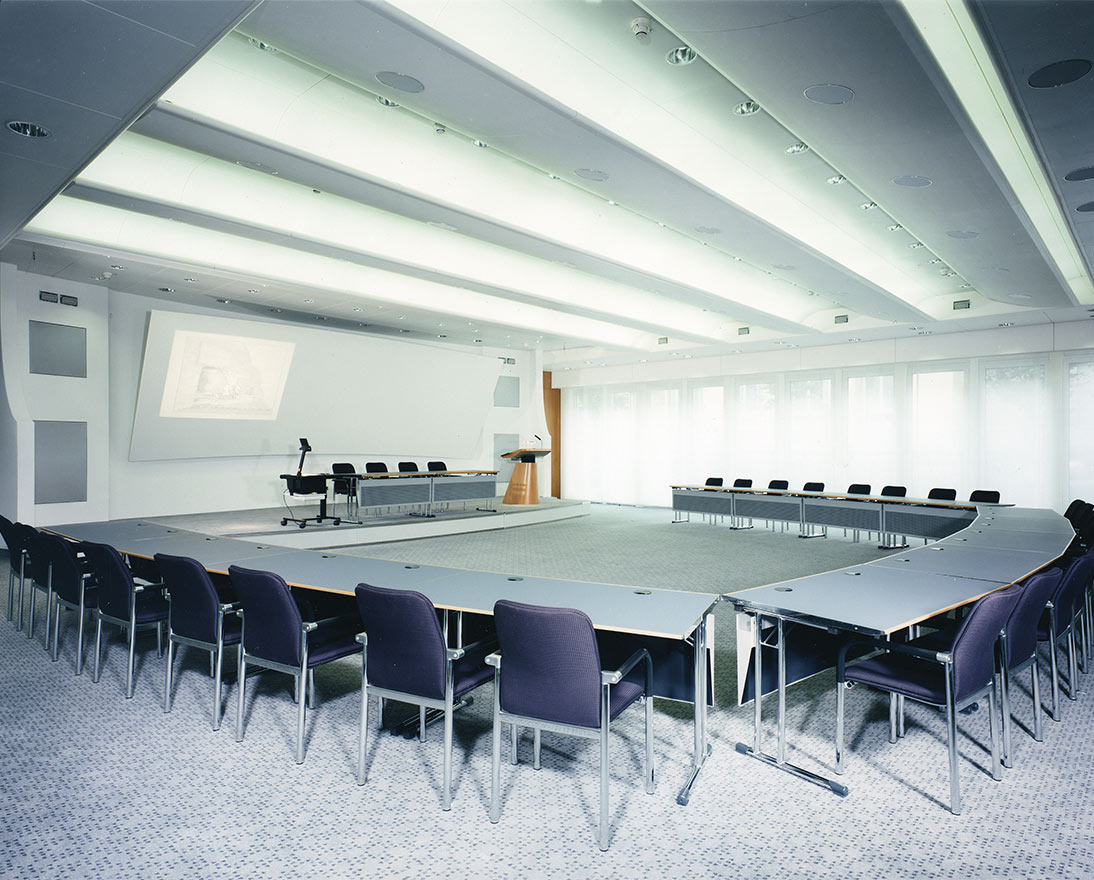Lifers (Part IV) The 21st Century: No smoking, no ties, home office
PeopleArticleFebruary 17, 2023
What has it been like to work at Zurich for over 40 years? We asked our longest-serving employees around the world how they’ve seen the company culture evolve over the decades.
On September 11, 2001, Mike Berrenson – who, remember, started back in 1969 – was in Phoenix, Arizona, at the Premium Audit National Meeting, an annual event attended, on this occasion, mostly by Zurich employees.
When they came down for a very early breakfast, the coordinator of the meeting said a plane crashed into the World Trade Center. They thought, as many did when they first heard the news, that it was a small two-seater. Then they saw the images on TV. All planes were grounded. He and three other colleagues had to drive back East.
“We were lucky to get the car, first of all, because there weren’t many available,” Mike says. They left the next morning, spent a night in Albuquerque, New Mexico, and a second night in Terre Haute, Indiana. “There wasn’t much conversation during the trip as we really didn’t know what to say to one another about what happened. When we did stop for food and gas, we saw other travelers who were also trying to reach their homes. Some were heading East and some heading as far West as California.”
As a field auditor in the 1980s, he, as did Carol in the Chicago office, had a bag phone in his company car – think Michael Douglas in ‘Wall Street’ – but by now he was in touch with his family with a proper turn-of-the century flip phone. They arrived back on Friday evening.
Only about a week later did he find out that Zurich lost four employees: John Keohane, Peggy Alario, Kathy Moran and Lud Picarro. “Needless to say, it was quite sobering,” he says. The following year, Zurich established the annual KAMP Leadership Award given to team members within the company who demonstrate the leadership qualities of the four colleagues who were lost that tragic day. KAMP – an acronym made from the first letter of their four last names – also serves as a reminder about Keeping A Meaningful Perspective.
Weathering the financial crisis
Antonio Bico became CEO of Portugal on April 1, 2007 – April Fool’s Day – but the economic storm clouds beginning to gather were anything but funny. It may have been a dream come true for Antonio, who started out as that eager, wide-eyed teenager in 1970, but soon he was faced with the worst financial crisis since the Great Depression. “The crisis was severe for us,” he says. “The unemployment rate went up to about 17 percent. The toughest thing I did was the restructuring of the company. We had to do a lot of difficult things, and we did.”
After the recovery, he says, “we started to see the sun come out in Portugal again,” only to face the Covid pandemic and now the war in Ukraine. “My 15 years as CEO has been full of cycles, difficult cycles, complex cycles. But as a company, working collectively, we always overcame these things, and had success. So we’re a great team, and I’m very proud of this.”
What vanished in the new century across Zurich, at long last, was smoking. In many of Zurich’s offices around the world it was phased out in the late 1990s, but it was Ireland that led the way globally by passing legislation that banned smoking in the workplace – bars and restaurants included. In Paul Croghan’s Dublin office, that just meant the smokers went down to a specially designated spot in the basement garage. “If anything, since they wouldn’t have met people from other departments, it created new friendships,” he says, “and even a number of marriages.” Drinking during lunchtime also became a thing of the 20th century. “I haven’t seen midday drinking in a good while, but it was typical in the ’80s and ’90s.” Drinking after work with colleagues also became less routine.
One thing that the company lost, to its detriment in Paul’s view, was the hiring of people with disabilities. In 1981, he says, there was a blind telephone operator. “She never saw anybody, but she knew everybody – by their voice. She was amazing.” Her name was Maureen Newall. “Back then,” he continues, “the ethos of the company was we give people with less capacity the chance to contribute. Then in the late ’80s, ’90s and 2000s, employees were only taken in if they could deliver, high-performance people. Thankfully, Zurich is coming back around to think more about people who have issues to deal with, particularly physical disabilities, and I think that’s wonderful. It’s heartening to see Zurich go back to the values I like, which is to give people a chance to be whatever they can be and deliver enough to be employed without working 20 hours a day.”
Dress (down) for success
Dress codes, where they had been formal, like in the Dublin office, slowly loosened. “When I started, you’d never go in without a shirt and tie,” Paul says. “Now it’s completely different. Our previous managing director, Patrick Manley, was there for 10 years and was progressive, but the current M.D., Neil Freshwater, is even more progressive. He rarely wears a formal shirt and tie, and during Covid he let his hair grow out. Over the decades, it has transitioned from business-formal to smart casual to whatever you’re comfortable in for your day. But the work gets done, and people respect the change as being positive.”
If the pandemic forced companies into a collective, world-wide home office, Zurich was ahead of the curve. Mike Berrenson started doing some home office as far back as 2002, while in Dublin they had two days remote pre-Covid. Carol McArdle was given the chance to work from home nine years ago when she announced to her boss in Chicago that she was leaving the company to move to Alabama.
“My boss said, ‘We’ll see what we can do for you.’ It was kind of iffy back then because most people weren’t doing it,” she says. “It was awkward at the beginning, but I got past that pretty quickly, and I always felt as if I was part of the group. I’ve had the most wonderful managers you can imagine. That makes all the difference. So when people ask me, ‘How come you don’t retire?’ Well, I love my job, I love the people I work with – why should I?”
For those who are nearing retirement, like those with 40-plus years of service interviewed here, the work-from-home option, many of them agreed, will ease the transition of not being in the office. Safe to say, the flexible schedule has been a positive change. Plato, quoting Heraclitus, once wrote “All is flux, nothing stays still.” Paul, our own philosophical colleague in Dublin, puts it this way: “I thought there couldn’t have been more change but there has been, which is great. Zurich has always changed.”
Ciao
Emanuela Carena started at Zurich’s Milan office in 1980. She was 19 and fresh from technical accounting school. It was in the heart of the city in an elegant building that also housed pricey condominiums.
Her parents were overjoyed, and she gave them her paycheck since only her father supported the family of five. Her colleagues welcomed her warmly and treated her seriously and professionally. They put her to work behind a manual Olivetti typewriter and offered her a voluntary black apron so as to not spoil her clothes. (This was Milan, after all.) Some of her first memories that year were commiserating with her co-workers after the attack on Bologna’s main train station and later when Southern Italy was devastated by an earthquake in Irpinia – she could even feel the tremor up north. Two weeks later, on a Tuesday morning, news arrived that John Lennon – “my idol,” she says – was shot and killed in New York City. There was 9/11, the Indian Ocean tsunami of 2004, and the L’Aquila earthquake in 2009, which she says, “had a great impact on our work as an insurance company.”
But there were pleasant events lived together with her colleagues: Italy’s World Cup victories in 1982 and 2006, to name just two, plus the awards she obtained with her own team, moments of “collaboration, teamwork, satisfaction and friendship that will always remain.”
As she prepares to retire, she says, “it’s not easy to summarize 42 years of working life, but they were intense years, full of great experiences and people, where my company has always been present and close during every moment and challenge. The two years of the pandemic that have just passed only confirm how proud I am to have worked for Zurich, for all the support it has given me both personally and psychologically. Now that I have reached my milestone, I can only say, with a big heart, thank you Zurich.”
A couple of weeks later, when we ask Emanuela if she has any photos to share, she writes in Italian, simply: “Non ho foto da condividere. Solo ricordi.” “I have no photos to share. Only memories.”
From Zurich’s 150th Anniversary Book.
Photo: Employees enjoy the Innovation Hub at Quai Zurich Campus.



